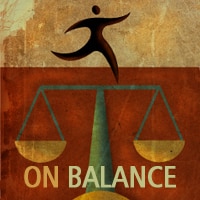When sanctioning lawyers who have violated the rules, ethics regulators typically consider a set of aggravating circumstances that can increase the punishment, as well as a list of mitigating factors that may reduce it. These factors may include prior discipline, or lack thereof; harm, or lack of harm, to clients; or extreme mental or physical duress on the attorney’s part at the time of the misconduct.
Not every state agrees, however, on how to treat the attorney’s length of time in practice. Should mature attorneys have known better and be sanctioned more harshly? Or having gone so long in practice without discipline, should they be cut a break? This lack of agreement among the states raises an interesting question: To what end are the mitigating and aggravating factors intended to contribute? Are regulators looking to protect the public, punish the lawyer or impose equitable discipline?
Weighing Experience on the Discipline Scale
It makes sense from the standpoint of the lawyer being disciplined, but less sense from the standpoint of protecting the public, that some states consider lack of experience to be a mitigating factor. If the attorney caused great harm to a client or the public, this factor is unlikely to help much, to be sure. But in general, a new lawyer making an error that does not cause major harm will be given some credit in mitigation for his lack of experience. Nevada Supreme Court Rule 102.5, for example, lists “inexperience in the practice of law” as a mitigating factor.
On the other hand, some regulators impose a harsher punishment on lawyers who have been in practice for a lengthy period of time, on the reasoning that they should know better than to commit the error. Looking again at Nevada, the rather lengthy list of aggravating factors in Nevada Supreme Court Rule 102.5 includes “substantial experience in the practice of law.”
In some jurisdictions, however, inexperience and substantial experience are not quite so blatantly on one side of the scale or the other. In California, for instance, there is no aggravating factor related to length of time in practice, but there is a mitigating factor of absence of prior discipline when combined with “many years of practice” and the misconduct at issue in the case not being particularly serious.
What Is Most Fair? To Whom?
The different ways various jurisdictions treat experience illustrates that the appropriate weight it should be given — and on which side of the scale — is debatable. Contrast this to factors such as substantial harm to the client or public (always aggravating) or good faith, honesty and candor (always mitigating), the roles of which are extremely clear. If it is debatable how to treat experience, then on what basis are jurisdictions coming to their conclusions on how to use it?
Ethics regulators repeatedly state that their role is not to punish attorneys who err, but rather to protect the public. Those of us in ethics defense work take issue with this description at times, but if that is indeed the role of regulation, then experience truly does not play into the equation at all. The attorney who has practiced longer in Nevada before making a mistake is no more of a threat to the public than the attorney who practiced for a short time before making an error. Yet Nevada would punish the mature lawyer more severely. California gives the mature lawyer a break if other factors are present, but the public is no less threatened because the lawyer took longer to mess up.
The attorneys facing discipline in these cases are also entitled to a fair proceeding and due process. So how does it fit into the fairness to them if their length of time in practice is taken into account? It does seem fair to give the green lawyer who made a mistake straight out of the gate some mitigation for his inexperience, as long as his error did not cause significant harm. On the other hand, there seems to be no fairness whatsoever in imposing a harsher punishment on someone who has practiced for a long time.
The Water Remains Muddy
With different states treating experience differently, you will need to know what to expect in your own states. We cannot generalize to the point of usefulness. If you are admitted in multiple jurisdictions, discipline imposed by each bar may vary for the identical conduct due to application of the aggravating and mitigating factors.
Illustration ©ImageZoo.

















